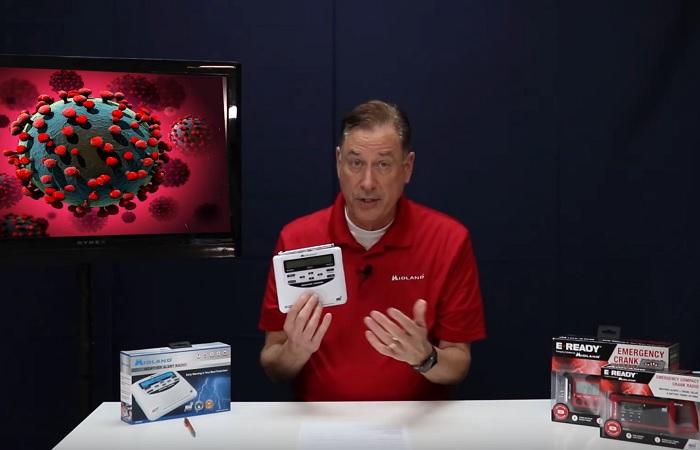Can my Weather Radio Receive Coronavirus Alerts?

Table of Contents
NOAA Weather Radios Can Receive Coronavirus Alerts
Yes, NOAA Weather Radios can receive coronavirus alerts and might be useful at times during the pandemic. Here are non-weather alerts that could be issued by your state or county emergency manager, if he/she chose to do so:
Local Area Emergency (LAE)
Warns of events that do not pose “significant threat to public safety and/or property by itself, but could escalate, contribute to other more serious events, or disrupt critical public safety services. Instructions may be provided.”
Example: possible or ongoing disruption to city water supply, road closures due to traffic congestion, instructions for getting to medical facilities.
Civil Emergency Message (CEM)
Warns the public of a “significant or in-progress threat to public safety.” Would also trigger the Emergency Alert System (EAS) via commercial TV and radio.
Example: food supply has been compromised, water supply is contaminated, some medical facilities inoperable.
Civil Danger Warning (CDW)
Warns of an event that presents a danger to “a significant civilian population”, mentioning a “specific hazard”, and gives protective actions to take. Could be followed by an Evacuation Immediate (EVI), or Shelter-in-Place Warning (SPW)
Example: Used in the event of a major threat to human life, such as a widespread release of radioactivity, a very highly contagious disease such as the coronavirus, or dangerous poison, crippling severe weather event, or nuclear attack.
Editable Alerts (Events) for NOAA Weather Radios
Important: Our desktop weather radios (WR-120, WR-300, WR-400) have an EDIT EVENTS function that allows you to turn some audible alerts on or off. By Public Alert specification, major message like the LAE, CEM, CDW, Tornado Warning and Hurricane Warning are not allowed to be silenced and therefore do not show up in the list of editable alerts. In other words, these important alerts are permanently “locked in”.
Our NOAA Weather Radios are useful for more than just weather alerts and can update your with coronavirus alerts from your county or state emergency manager, or the federal government; keep it plugged in at all times to keep you updated on any public alerts that may be vital to you and your family.


